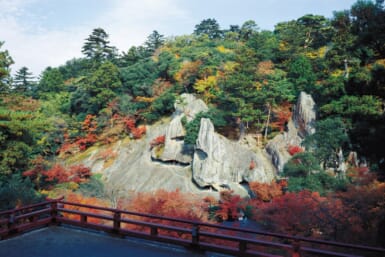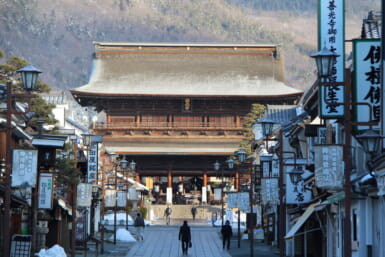by Henry Scott Stokes
It is not every day that an entire stock market that was opened with a tremendous bang in this world just goes phutt two years later. That, however, has been the fate of Nasdaq Japan.
How high the hopes were! I recall the opening party for Nasdaq Japan. It was held at a Tokyo hotel, the Akasaka ANA Hotel, on June 19, 2000. It was, I think, the largest reception I have seen in Tokyo in many a year. As I said, it is not every day that a stock market is opened. So, a huge bash was held, with hundreds and hundreds of middle-aged Japanese executives in dark suits, all come to view the ballyhoo.
Not to be outdone, Bill Clinton sent a message hot from the White House, to congratulate the newly-crowned President of Nasdaq Japan, ex-IBM Japan salesman Tatsuyuki (“Ted”) Saeki. This was formally delivered to Ted right up there in front of everyone, and duly read out.
The media hype was extreme. The opening of the new market— the brainchild of Masayoshi Son of Softbank—was marked by a flood of pieces in the papers, comparing the arrival of Nasdaq in this country to that of Commodore Matthew Perry with his “black ships” in the early 1850s. Nasdaq was going to push its way into this country with just as much brio as Perry at Shimoda. Hundreds of startups—super little firms—were waiting to list, Ted’s staff told me.
Technically, for whatever reasons, the Nasdaq Japan market, we were informed, was being attached to the Osaka Stock Exchange. But physically it was located in the ARK Mori Building, just a minute away from where that huge hotel bash was held in June 2000. That was where Ted pitched his tent, and his staff settled down.
All of this, I can tell you, represented a very considerable headache for the powers-that-be here. Having competition, hot from New York, on their doorstep, was not at all to the liking of the Tokyo Stock Exchange and nor was it pleasurable to contemplate from the point of view of Nomura Securities, the great player in the market for new issues in this country, oh, for as long as anyone can remember. The Yanks truly were barging into a Japanese preserve, and with a very particular person in tow, namely Mr. Son.
I think that’s where the trouble began, actually. Looking back, it was Masa’s involvement—as principal partner in the project with Nasdaq US—that set people clucking here. How so? Over the years, the Softbank supremo, bright as a penny as he is, had made some tremendous enemies. Of these, by far the most important, the bush telegraph said, was Mr. Nobuyuki Idei, chairman of Sony, no less.
I never did find out what it was that set these two at each other’s throats. But fairly on— after the June 2000 launch—it became clear that any company that was coming to market that had anything to do with Sony, at whatever remove, was not going to do its issue on Nasdaq Japan. Privately, Ted wailed to me about that.
“It’s my big problem,” he said.
Saeki-san had been a terrific salesman in his time at IBM Japan, I knew that. But he was new to the securities industry. How could he persuade the likes of Sky Perfect Communications— one of the biggest firms to come to the market early on in Ted’s time—to bring their business to Nasdaq Japan, when behind the scenes all his best efforts were being blocked by forces marshaled by Idei-san?
He couldn’t. One way or another Nasdaq Japan got stuck with the reputation of being there to serve Masa. A quick check proved the point. Which companies did their issues on Nasdaq Japan? Why, let us see now, the newcomers included Morningstar Japan, E*Trade Japan, cyber communications (lower case for the first letters, the company insisted) and Softbank Investment Corporation. They were all firms in which Masa had invested.
Little by little, the word began to spread that Nasdaq Japan— despite Ted’s best efforts—faced an uphill struggle. All of a sudden Ted stopped answering my calls to his office. I think I made 20 unanswered calls. Even the secretary didn’t get back to me, let alone the great man himself. This became odder and odder. When in my life had I failed to get a score of calls even acknowledged?
At the time I was working on a thick report on 100 companies that newly-listed on Nasdaq Japan and the two competing markets— Mothers, an offshoot of the Tokyo Stock Exchange; and Jasdaq, the usual marketplace for startups to come to in Japan. We were running monthly pieces in Tokyo Weekender to report the progress of IPOs—first-time issues known as “initial public offerings,” and we were working up to that big 100-company report to be published eventually by The Economist group in November 2001.
I was writing, writing, writing all the time, and meeting with the CEOs of some 25 Nasdaq Japan-listed firms. From Ted, I could get not a peep, even though we were neighbors more or less, my office being just two minutes walk from his place.
I guess it was a signal that something was amiss…But, still, to be sure, I never imagined in my wildest dreams that we would arrive in the situation today, with Nasdaq US announcing that it is pulling back…This is unbelievable.
As one can see from a glance at the table accompanying this article, companies are still coming to market in September, listing Nasdaq Japan as their place of issue. Altogether Nasdaq Japan listed some 100 companies. What an unholy mess! Ted, of course, is no longer President & CEO. He has been held responsible.
I dunno. I point to one fact. Despite the fact of the collapse of the pseudo-Black Ships of Nasdaq, the markets march on. Some 13 companies have listed up to do their IPOs this month of September. They are a healthy bunch. The interesting thing is that despite the Japanese economy being in the doldrums, 2002 has been a good year for IPOs in this country up to the end of June.
Some 64 companies went public in Japan in the first half of this year, and they raised some ¥262 billion or a bit over $2 billion. Many of these startups, as you can see by consulting their Websites, have unique business models and are not held back by the poor state of the economy. Out of those 64 companies that went public up to end-June, some 55 saw their prices shoot up on opening day, thereby delivering quick profits to investors in the firms.
What is even more remarkable—for an economy that is supposed by many to be in terminal throes—is that the demise of Nasdaq Japan has not knocked confidence skew-whiff at this time. That is what the table with this article says. There are plenty of guys wanting to come to market even in this slightly jittery atmosphere. I like it!







_KRAACH-クリスタルバスソルト-385x257.jpg)
